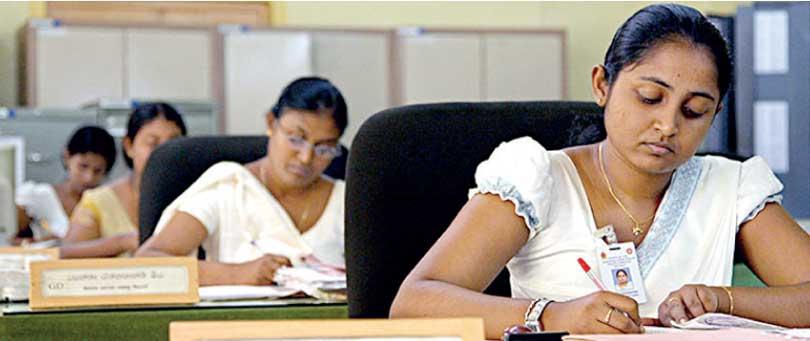12 Jun 2024 - {{hitsCtrl.values.hits}}

By Nuzla Rizkiya
Sri Lanka ranks 165th out of 185 countries for its female workforce participation, according to data by the World Bank and International Labour Organization (ILO).
With a female labour force participation rate of 32 percent consisting women aged 15 and above, Sri Lanka showed a significantly lower rate below the global average of 49 percent.
The ranking was compiled by Visual Capitalist, sourcing data from the World Bank and ILO estimates for 2023.
“By glancing through the bottom 20, it’s apparent that countries in the Middle East, North Africa, and South Asia exhibit notably lower rates of women in the workforce,” the publication noted.
It defined a country’s labour force as people aged 15 plus who are working or actively looking for work in exchange for pay, profit, or shared production.
However, unpaid workers, family caretakers, students, and military personnel may have been excluded from the count.
The ranking listed Madagascar, Solomon Islands and Burundi at the top 3 spots for its female workforce participation rates amounting close to 80 percent. Afghanistan, Yemen and Iraq were estimated to have the lowest percentage of working-aged women in their workforce at 5 percent.
Gender ideality and the disparity in payment for women in Sri Lanka have been identified as a critical issue that requires urgent addressing, according to several local and international organisations. Statistics point out that women are considerably left behind in economic development and recovery efforts despite having commendable educational levels and professional capabilities.
Moreover, female unemployment rate rose to 7 percent in 2023, up from 6.5 percent in the previous year, signifying a concerning trend in retaining women in the overall labour force. Additionally, studies reveal women in Sri Lanka spend an average 6.5 hours a day engaging in unpaid care work.
Experts list out several factors that contribute to the gender gap including the lack of safe and affordable childcare facilities, inadequate provision for flexible working hours and the significant hurdles women face when seeking employment.
Furthermore, the socially imposed household responsibilities and care duties disproportionately burden women, limiting their ability to explore professional opportunities.
27 Nov 2024 2 hours ago
27 Nov 2024 3 hours ago
27 Nov 2024 3 hours ago
27 Nov 2024 4 hours ago
27 Nov 2024 4 hours ago